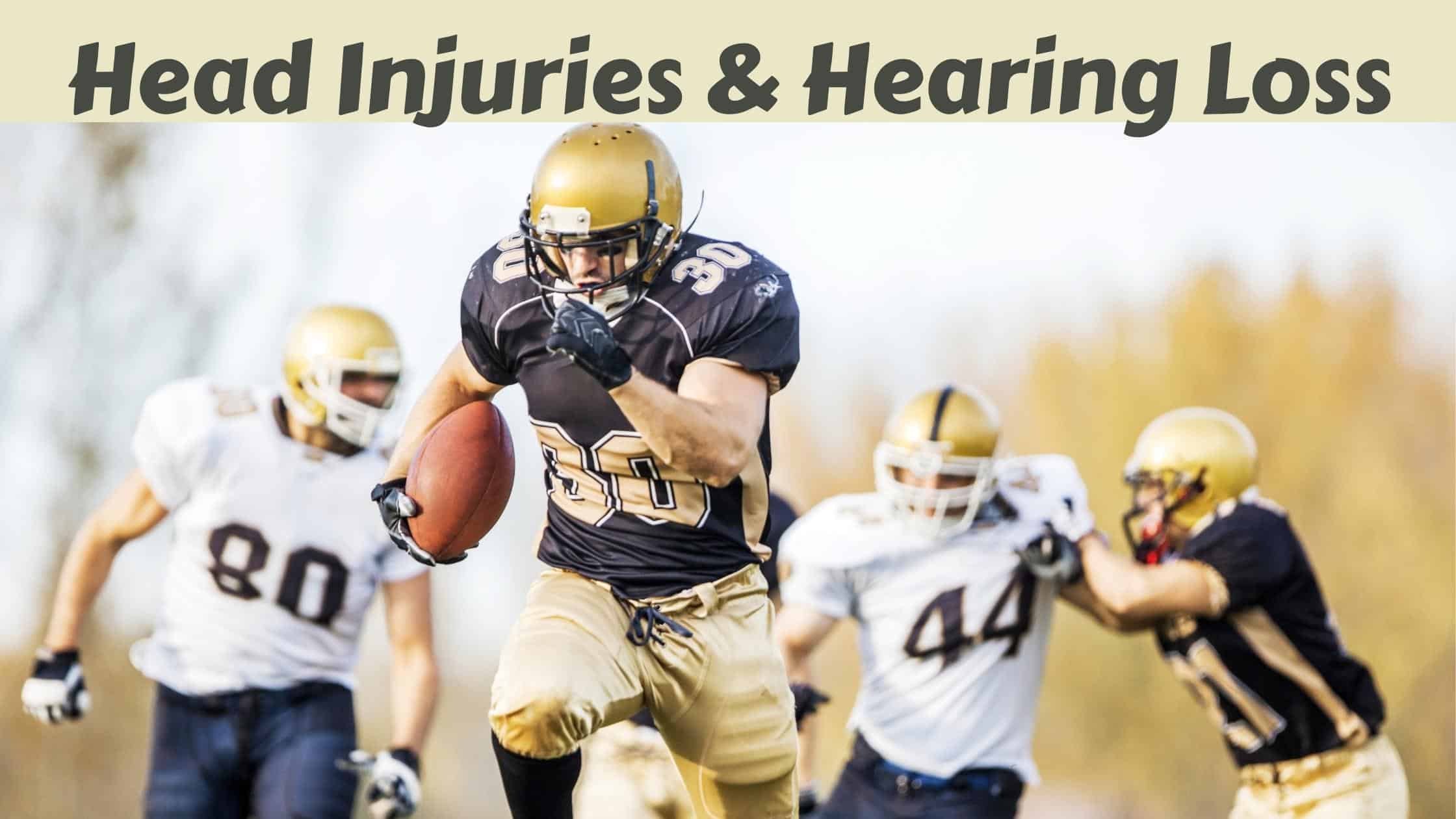Hearing loss is a serious issue affecting approximately 48 million people in the US alone. There are several things you can do to protect your hearing loss and they do not only revolve around exposure to loud noise. While advanced age and noise induced hearing loss are the most common causes of hearing damage, other causes include infection, exposure to ototoxic chemicals, and medications. Another serious risk to your ears are head injuries.
What is a Head Injury?
When you sustain impact to the head the result could be a traumatic brain injury (TBI). A TBI is a disruption in the normal function of the brain often caused by a blow, bump or jolt to the head. They can happen unexpectedly making it difficult to predict and take proper precautions. The most common TBI is a concussion, most commonly leaving a victim with headaches, problems with concentration, memory, balance and coordination.
The Most Common Causes of Head Injury
Head injuries are most caused by contact sports, car accidents, and explosions. While a severe head injury can often result in death, even a mild concussion is important to take seriously. Even a minor head injury can cause motor function impairments such as:
- coordination
- balance,
- insomnia
TBI can also cause cognitive impairments including:
- memory
- decision making,
- reading and writing,
- altered speech,
- impaired judgment.
- changes in behavior and personality,
- poor coping skills,
- anger management issues,
- anxiety
- mood swings
- depression.
Head Injuries & Hearing Loss
Senses are also affected by a TBI. Many who sustain a head injury report loss of taste, problems with vision, smell, and hearing loss. Hearing loss connected to a TBI may be related to damage to the ear, including the parts of the brain that process sound. The hearing system is incredibly fragile containing the smallest bones in the entire body and relies on tiny cells to transmit sound to the brain. An unexpected impact can easily cause an eardrum to rupture, cause damage to the inner ear, or permanently damage the auditory pathway which is responsible for carrying signals from the ear to the brain.
If you have sustained a head injury it is important to take it seriously if you are experiencing issues hearing amongst noise, following conversation, or locating sounds, there is a good chance that your hearing needs to be addressed. Other clues which note hearing damage post TBI include extreme tinnitus and or vertigo/ balance issues. There are several treatment options depending on the damage, but the sooner you seek out treatment the sooner your hearing can be addressed.
Preventing Head Injuries
According to The Centers for Disease Control (CDC), TBI is the leading cause of death and disability in America. It is reported that annually there are up to 3 million head injuries and over 1 million of these are traumatic brain injuries that lead to hospitalization and further complications.
It is hard to predict when a head injury will affect you. It often happens in a car, while riding a bike, skateboard, or any other vehicle. It is important to wear a helmet whenever you are in a moving vehicle. The CDC reports that “helmets saved an estimated 1,859 lives in 2016. If all motorcyclists would have worn helmets in 2016, 802 more could have been saved.” While it is not commonplace to wear a helmet when in an automobile or truck, it is imperative to wear your seatbelt. This can keep you in place during an unexpected accident and prevent head injury. Another major cause of TBI occurs while playing contact sports such as football.
Contact Sports and CTE
Even when using a helmet, the rates in football players with TBI is notably high. Chronic traumatic encephalopathy (CTE) is a progressive brain condition caused by repeated blows to the head and repeated episodes of concussion. A study, published in the Journal of the American Medical Association (JAMA), found CTE in 99 percent of brains obtained from National Football League (NFL) players, as well at 91 percent of college football players and 21 percent of high school football players.
Treating Hearing Loss
If you have sustained a TBI and it’s affecting your hearing, it is important to treat it as soon as possible. It may be hard to self-diagnose a hearing loss, which is why, if you or someone you know has sustained impact to the head, it is important to schedule regular hearing exams. Schedule your hearing exam today and be proactive about your hearing health.

